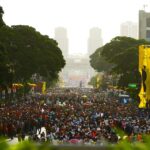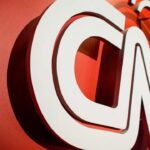2018 was marked by the consequences that have left in the Venezuelan people the sanctions and the financial blockade, imposed on the country by the United States Government and some nations of the European Union.
These have left losses of one billion dollars, as reported by Vice-president Delcy Rodríguez at the beginning of December.
“The people of Venezuela must know that financial sanctions against the nation have cost us a billion dollars, but we continue to work for the welfare of all Venezuelans,” said the official.
While the Constitutionalist Hermann Escarrá considered that these measures are a “direct attack on the Venezuelan State, the democratic structure and its governability.”
Sanctions
In January The European Union (EU) imposed restrictive measures against seven high officials: the current a president of the Constituent Assembly Diosdado Cabello, the president of the National Electoral Council, Tibisay Lucena; the Attorney General, Tarek William Saab; Interior Minister Néstor Reverol; the president of the Supreme Court of Justice, Maikel Moreno; the then director of the Bolivarian intelligence service, Gustavo González López; and the former commander of the Bolivarian National Guard, Antonio Benavides.
The national government rejected this decision of the EU and classified them as “worthless”, because they “violate the fundamental precepts of the Charter of the United Nations and intend to exercise a gross interference in internal affairs of our country.”
On March 4, the president of the United States, Donald Trump, issued a new executive order which extended for another year the national emergency that declared our country an “unusual and extraordinary threat” to the security of that nation.
Fifteen days later, Trump himself put his signature on a new executive order that prohibits any type of transaction with cryptocurrencies issued by the Venezuelan Government.
This decree was issued one day before the sale of the first Venezuelan digital currency, the Petro, which was created by President Nicolás Maduro to circumvent the effects of the blockade imposed by the gringos to our country.
On the 28th of the same month, Switzerland imposed sanctions on the nation that included the prohibition of sale, export and transit of military equipment goods or that could be used, according to them, for repressive purposes. It also includes equipment and technology for surveillance and interceptions of telephone or internet communications.
At the end of May, Canada applied new coercive and unilateral sanctions to 14 officials, including the first combatant Cilia Flores, the first vice president of the National Constituent Assembly (ANC), Tania Diaz, as well as the mayor of Caracas, Erika Farías. .
Meanwhile the US government lash out against the nation one more time. One day after the presidential election, which was held on the 20th of May and in which President Nicolás Maduro was re-elected, a new order is signed in which the National Executive is prohibited from selling debt and public assets in US territory.
Also, the constitutionalist Diosdado Cabello, his brother, José David Cabello; and his wife, the then Minister of Tourism Marleny Contreras.
On the first of November, the rulers of the northern country returned to attack the people of Venezuela. This time the announcement was made by National Security Adviser John Bolton, who announced that sanctions were imposed on the gold sector with which the nation’s gold exports were being interfered with.
Against public health
Health has been one of the sectors most affected by the measures taken by the Yankee authorities. For example, in May the then Minister of Health, Luis Lopez, denounced that transnational companies blocked “a transaction of seven million dollars that was being destined by President Nicolás Maduro so that dialysis patients can be guaranteed their treatment in Venezuela. ”
Previously, the president himself reported that the Euroclear system seized a 1,200 million euros that would be used to buy food and medicine.
In an interview conducted at the end of this year by the journalist Clodovaldo Hernández, for his Cara a Cara program on La IguanaTV, the director of the University Clinical Hospital (HCU), Fernando Alvarado, explained some of the consequences that the blockade has left in the patients of this health center.
- The blockade has been the cause of death of many patients ?, asked Hernandez.
-Of course! Alvarado answered, all those suffering from chronic diseases are at risk: hypertensive people, diabetics, nephropaths, people with cancer. We see that with great concern. You have to be in the hospital to realize the drama of a person who comes with one of these diseases and there is no way to treat it because then US government banned us from buying drugs. I return and I repeat: we do not want them to be given to us for free. We want them to sell the medicines to us and we have money to buy them. Sell us those medicines, because the sick people is not to blame!
Translated by JRE
| Website




